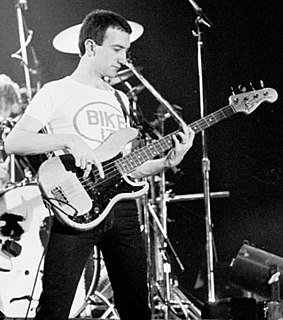A Quote by Friedrich Nietzsche
Some people throw a bit of their personality after their bad arguments, as if that might straighten their paths and turn them into right and good arguments-just as a man in a bowling alley, after he has let go of the ball, still tries to direct it with gestures.
Related Quotes
Most of this film, however, is about interpretation - are these people terrorists or freedom fighters? Are they good or bad? Is cutting timber good or bad? And I don't feel like the answers to those questions are simple, so we don't try to answer them for the audience. I wanted to elicit the strongest - and most heartfelt - arguments from the characters in the film and let those arguments bang up against the strongest arguments of their opponents.
Sometimes, with portrayals of domestic violence, the women involved are just victims with no personality, just completely trodden-down. But people continue to live their normal lives: they go out; they continue to have arguments with their partners, even if there is always the fear of where that might end up.
You still could go to some industry or some university or the government and if you could persuade them you had something on the ball—why, then, they might put up the cash after cutting themselves in on just about all of the profits. And, naturally, they'd run the show because it was their money and all you had done was the sweating and the bleeding.
Cats are too independent. They piss me off. They play when they want, and then they turn their back on you. Dogs, you throw the ball, and they bring it back, tongue hanging out, tail wagging. Cats are like "Not right now, too busy." Definitely a dog man. Except when it comes to cleaning up after them! Cats win that!
When confronted with two courses of action I jot down on a piece of paper all the arguments in favor of each one, then on the opposite side I write the arguments against each one. Then by weighing the arguments pro and con and cancelling them out, one against the other, I take the course indicated by what remains.









































